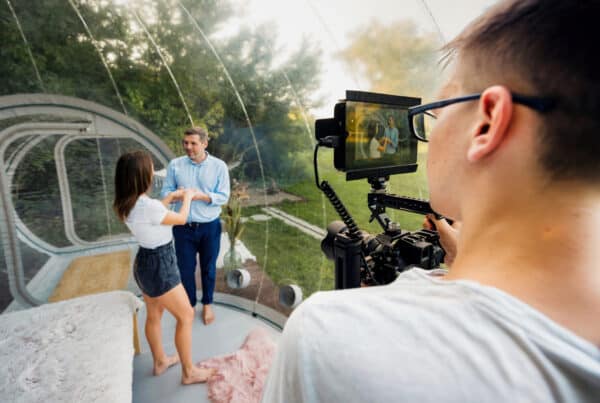Virtual field trips have revolutionized the way students and individuals can explore the world. They offer an immersive and interactive experience virtual travel tours that brings distant locations, historical events, and scientific phenomena directly to your screen. In this blog post, we will delve into the world of virtual field trips, exploring their benefits, types, popular destinations, and how to make the most of them. Whether you’re an educator, a parent, or just a curious mind, this comprehensive guide will help you navigate the exciting realm of virtual field trips.
The Rise of Virtual Field Trips
The concept of virtual field trips isn’t entirely new, but it has gained significant traction in recent years, particularly due to advancements in technology and the global pandemic that restricted physical travel. Virtual field trips have emerged as a practical and innovative solution to continue exploring the world, fostering learning, and satisfying our innate curiosity.
Benefits of Virtual Field Trips
- Accessibility: Virtual field trips break down geographical barriers, making it possible for anyone with an internet connection to explore remote locations, historical sites, and natural wonders without leaving their home or classroom.
- Cost-Effective: Traditional field trips can be expensive, involving costs for transportation, accommodation, and entry fees. Virtual field trips eliminate these expenses, making educational travel more affordable and accessible to all.
- Safety: In an era where safety is a top priority, virtual field trips provide a secure way to explore the world without the risks associated with physical travel.
- Interactive Learning: Many virtual field trips incorporate interactive elements such as quizzes, videos, and live Q&A sessions with experts. This engagement enhances learning and keeps participants actively involved.
- Flexibility: Virtual field trips can be scheduled at any time, allowing educators and parents to integrate them seamlessly into their lesson plans or daily routines.
Types of Virtual Field Trips
Virtual field trips come in various forms, each offering a unique experience. Here are some common types:
1. Live Guided Tours
Live guided tours are real-time virtual experiences led by knowledgeable guides. These tours often include live commentary, Q&A sessions, and interactive elements. Museums, zoos, and historical sites frequently offer live guided tours to provide an immersive experience.
2. Pre-Recorded Tours
Pre-recorded tours are virtual experiences that can be accessed on-demand. They are typically well-produced and offer a comprehensive exploration of a location or subject. Pre-recorded tours are convenient for self-paced learning and can be revisited multiple times.
3. Interactive 360-Degree Tours
Interactive 360-degree tours use advanced technology to create a fully immersive experience. Participants can navigate through a location as if they were physically present, exploring every angle and corner. This type of tour is popular for museums, landmarks, and natural wonders.
4. Virtual Reality (VR) Experiences
Virtual reality experiences take immersion to the next level by using VR headsets to create a three-dimensional, interactive environment. While not as widely accessible as other types of virtual field trips, VR experiences offer a highly engaging and lifelike exploration.
5. Webinars and Virtual Workshops
Webinars and virtual workshops focus on educational topics and often feature guest speakers, experts, and interactive activities. These events can cover a wide range of subjects, from science experiments to historical reenactments.
Popular Virtual Field Trip Destinations
Virtual field trips can take you to some of the most fascinating places on Earth. Here are a few popular destinations that offer exceptional virtual experiences:
1. The Louvre, Paris
The Louvre, one of the world’s most famous museums, offers virtual tours of its extensive art collection. Explore masterpieces like the Mona Lisa and the Venus de Milo from the comfort of your home.
2. Smithsonian National Museum of Natural History, Washington, D.C.
The Smithsonian National Museum of Natural History provides virtual tours of its exhibits, including the Hall of Fossils and the Butterfly Pavilion. Dive into the wonders of natural history and science through interactive displays and detailed descriptions.
3. British Museum, London
The British Museum offers virtual tours of its vast collection, covering everything from ancient Egypt to contemporary art. Explore artifacts and exhibits through detailed images and informative descriptions.
4. San Diego Zoo
The San Diego Zoo offers live cams and virtual tours of its animal exhibits. Watch pandas, elephants, and other animals in real-time and learn about their habitats and behaviors.
5. NASA’s Kennedy Space Center, Florida
For those interested in space exploration, NASA’s Kennedy Space Center offers virtual tours of its facilities and exhibits. Explore the history of space missions, view rockets up close, and learn about the future of space travel.
6. Great Wall of China
The Great Wall of China is one of the most iconic landmarks in the world. Virtual tours allow you to explore this ancient wonder, learn about its history, and enjoy breathtaking views.
7. Galápagos Islands
The Galápagos Islands offer a unique opportunity to explore diverse ecosystems and wildlife. Virtual tours provide an in-depth look at the islands’ flora and fauna, highlighting their significance in the study of evolution.
8. Virtual Tours of National Parks
Many national parks, including Yellowstone, Yosemite, and the Grand Canyon, offer virtual tours of their stunning landscapes. Explore hiking trails, geological formations, and wildlife through interactive maps and videos.
How to Make the Most of Virtual Field Trips
To maximize the benefits of virtual field trips, consider the following tips:
1. Plan Ahead
Just like traditional field trips, planning is essential for a successful virtual field trip. Research the available options, select the most relevant ones, and schedule them in advance. Ensure that all necessary technology, such as internet access and compatible devices, is ready to go.
2. Set Learning Objectives
Define clear learning objectives before embarking on a virtual field trip. What do you want participants to learn or experience? Having specific goals in mind will help you choose the right virtual field trips and tailor the experience to meet educational needs.
3. Engage Participants
Encourage active participation by involving students or participants in interactive activities, discussions, and Q&A sessions. Many virtual field trips offer quizzes, assignments, and other engaging elements to keep participants involved and attentive.
4. Integrate with Curriculum
For educators, integrating virtual field trips into the curriculum can enhance the learning experience. Use virtual field trips to complement classroom lessons, provide real-world examples, and offer hands-on learning opportunities.
5. Follow Up with Activities
After the virtual field trip, reinforce learning with follow-up activities such as discussions, projects, or creative assignments. Encourage participants to reflect on their experiences and apply what they’ve learned.
6. Provide Context
Before starting the virtual field trip, provide participants with some background information and context about the location or subject. This will help them better understand and appreciate the significance of what they are exploring.
7. Technical Considerations
Ensure that you have the necessary technical setup for a smooth virtual field trip experience. Check internet connectivity, device compatibility, and any required software or applications. Have a backup plan in case of technical difficulties.
Virtual Field Trips in Education
Virtual field trips have become an invaluable tool in education, offering unique opportunities for students to explore the world beyond the classroom. Here are some ways virtual field trips are being used in education:
1. Enhancing Curriculum
Virtual field trips can enhance various subjects by providing real-world examples and immersive experiences. For example, history students can explore ancient civilizations, science students can visit laboratories and research facilities, and geography students can explore diverse landscapes.
2. Promoting Global Awareness
Virtual field trips foster global awareness by exposing students to different cultures, traditions, and perspectives. This helps students develop a broader understanding of the world and appreciate diversity.
3. STEM Education
Virtual field trips are particularly effective in STEM (Science, Technology, Engineering, and Mathematics) education. Students can visit science museums, observe scientific experiments, and explore technological innovations, sparking their interest in STEM fields.
4. Environmental Education
Virtual field trips to national parks, wildlife reserves, and ecological sites promote environmental awareness and conservation. Students can learn about ecosystems, biodiversity, and the importance of protecting natural habitats.
5. Historical and Cultural Exploration
History and social studies classes benefit greatly from virtual field trips to historical landmarks, museums, and cultural sites. Students can witness historical events, artifacts, and cultural practices, bringing history to life.
6. Career Exploration
Virtual field trips can introduce students to various careers by providing behind-the-scenes looks at workplaces, industries, and professionals in action. This helps students explore potential career paths and understand the skills required for different jobs.
7. Special Education
Virtual field trips offer inclusive learning opportunities for students with special needs. They can explore the world at their own pace, in a controlled environment, with accessible features such as closed captions and descriptive audio.
Conclusion
Virtual field trips have opened up a world of possibilities for exploration, learning, and discovery. They provide an accessible, cost-effective, and safe way to experience diverse locations, cultures, and subjects. Whether you’re an educator seeking to enhance your curriculum, a parent looking for engaging activities for your children, or simply a curious individual eager to explore the world, virtual field trips offer a wealth of opportunities.
By embracing the benefits of virtual field trips and integrating them into educational and recreational activities, we can continue to foster curiosity, expand knowledge, and inspire a love for learning in people of all ages. So, get ready to embark on exciting virtual adventures and discover the wonders of the world from the comfort of your own home!
Have questions about virtual field trips? Reach out to us!
We’re here to help with planning, recommendations, and any inquiries you may have. Contact us today to enhance your learning experience and explore the world from home.


